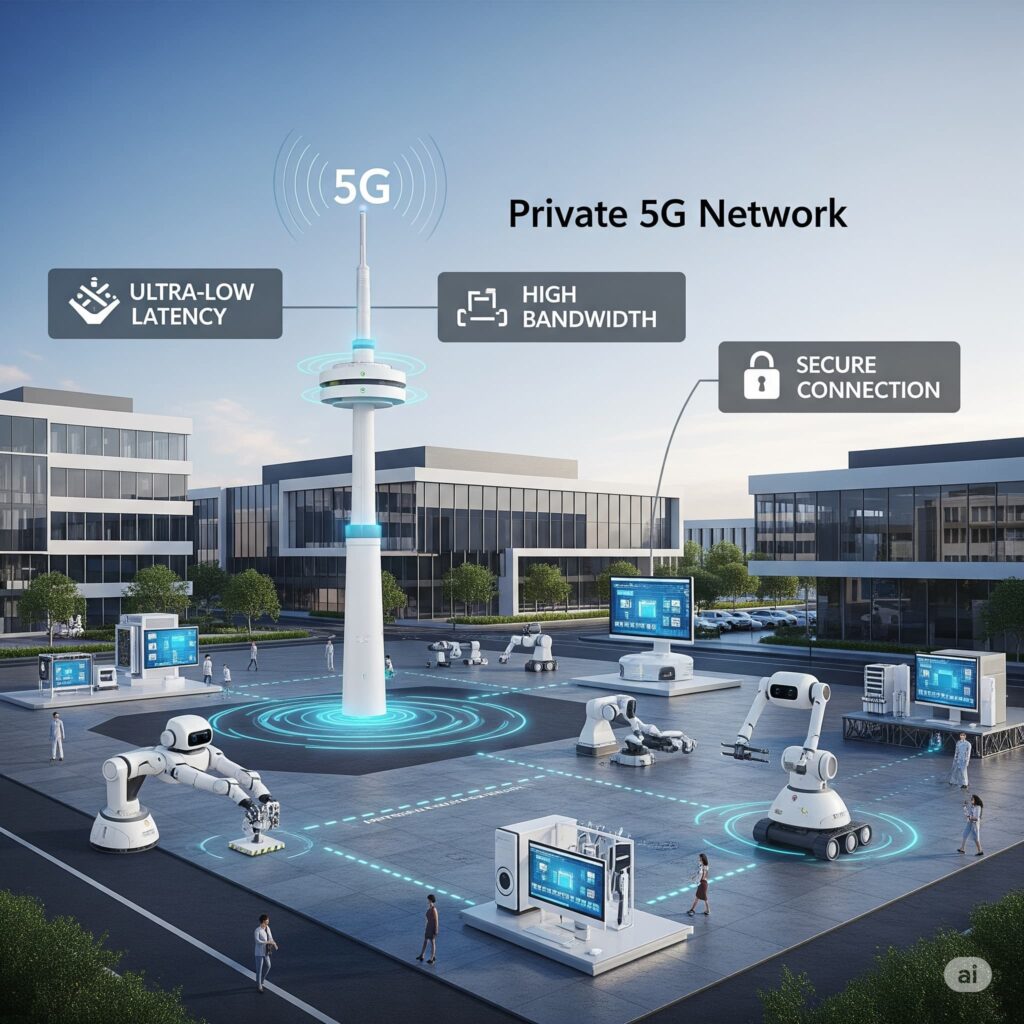
5G technology is rapidly transforming our world, but its impact extends far beyond faster smartphone downloads. One of the most significant and transformative applications of 5G is the rise of private networks. These dedicated, secure networks are revolutionizing industries, offering unprecedented levels of speed, reliability, and control. This post explores how private 5G networks are changing the game across various sectors.
What are Private 5G Networks?
Unlike public cellular networks shared by millions of users, private 5G networks are dedicated, localized networks owned and operated by a single organization. This means businesses can tailor their network’s capabilities to their specific needs, unlike relying on the shared infrastructure of a public network. This control extends to aspects such as bandwidth allocation, security protocols, and latency management, leading to significant advantages. These networks can be deployed on-premises, using the organization’s existing infrastructure, or in a hybrid model combining on-premises and cloud-based components.
The Advantages of Private 5G Networks
Private 5G networks offer a compelling suite of benefits that are driving their widespread adoption across numerous sectors. These advantages include:
- Ultra-low Latency: Experience significantly reduced delays in data transmission, crucial for real-time applications like robotics, automated guided vehicles (AGVs), and industrial automation.
- High Bandwidth: Enjoy significantly increased data transfer speeds, enabling the seamless transmission of large volumes of data generated by connected devices and machines.
- Enhanced Security: Benefit from a dedicated, isolated network, minimizing the risk of cyberattacks and data breaches compared to shared public networks.
- Increased Reliability: Experience consistent and dependable network performance, crucial for mission-critical applications where downtime is unacceptable.
- Scalability and Flexibility: Easily adapt the network’s capacity to meet evolving business needs, expanding or contracting as required.
- Improved Control and Management: Gain complete control over network configurations, security settings, and access permissions, streamlining operations and optimizing performance.
Revolutionizing Industries with Private 5G
The impact of private 5G networks is being felt across a variety of industries. Here are some key examples:
Manufacturing:
- Smart Factories: Private 5G networks are enabling the development of truly smart factories, where machines, robots, and sensors communicate seamlessly in real-time, optimizing production processes and improving efficiency. This facilitates predictive maintenance, reducing downtime and improving overall output.
- Automated Guided Vehicles (AGVs): The low latency and high reliability of private 5G networks are essential for the precise and safe operation of AGVs, enabling efficient material handling and logistics within manufacturing facilities.
- Quality Control: Real-time data analysis from connected sensors and cameras allows for immediate quality control checks, minimizing defects and improving product quality.
Healthcare:
- Remote Surgery: The ultra-low latency of private 5G networks enables the development of remote surgery capabilities, allowing surgeons to perform procedures on patients located in remote areas or challenging environments.
- Telemedicine: High-bandwidth and reliable connectivity facilitate high-quality video conferencing for consultations and remote monitoring of patients, improving access to healthcare.
- Connected Medical Devices: Private 5G networks provide the secure and reliable infrastructure needed for the seamless integration and operation of various connected medical devices.
Logistics and Transportation:
- Smart Ports and Warehouses: Efficient management of goods movement within ports and warehouses through real-time tracking, automated guided vehicles, and improved communication between various stakeholders.
- Autonomous Vehicles: Private 5G networks provide the reliable and secure connectivity required for the safe and efficient operation of autonomous vehicles in controlled environments like mines or industrial sites.
- Fleet Management: Real-time tracking and monitoring of vehicles, improving efficiency and safety while optimizing routes and fuel consumption.
Energy:
- Smart Grids: Private 5G networks are key to the development of smart grids, improving energy efficiency and reliability by facilitating real-time monitoring and control of energy distribution.
- Renewable Energy Integration: Efficient integration of renewable energy sources like solar and wind power, optimizing energy generation and distribution.
- Remote Monitoring of Infrastructure: Real-time monitoring of critical infrastructure like pipelines and power lines, enabling timely maintenance and preventing potential failures.
The Future of Private 5G Networks
The adoption of private 5G networks is still in its early stages, but the potential for transformation is immense. As the technology matures and becomes more affordable, we can expect to see even wider adoption across various industries. Further advancements in areas like edge computing and network slicing will further enhance the capabilities of private 5G networks, unlocking new possibilities and driving innovation. The integration of Artificial Intelligence (AI) and Machine Learning (ML) will also play a crucial role in optimizing network performance and extracting valuable insights from the vast amounts of data generated by connected devices.
Private 5G networks are not just an incremental improvement; they represent a fundamental shift in how industries operate. By offering unparalleled levels of speed, reliability, security, and control, they are empowering businesses to transform their operations, improve efficiency, and drive innovation. As the technology continues to evolve, its impact on our world will only continue to grow, shaping the future of various sectors and driving a new era of digital transformation.